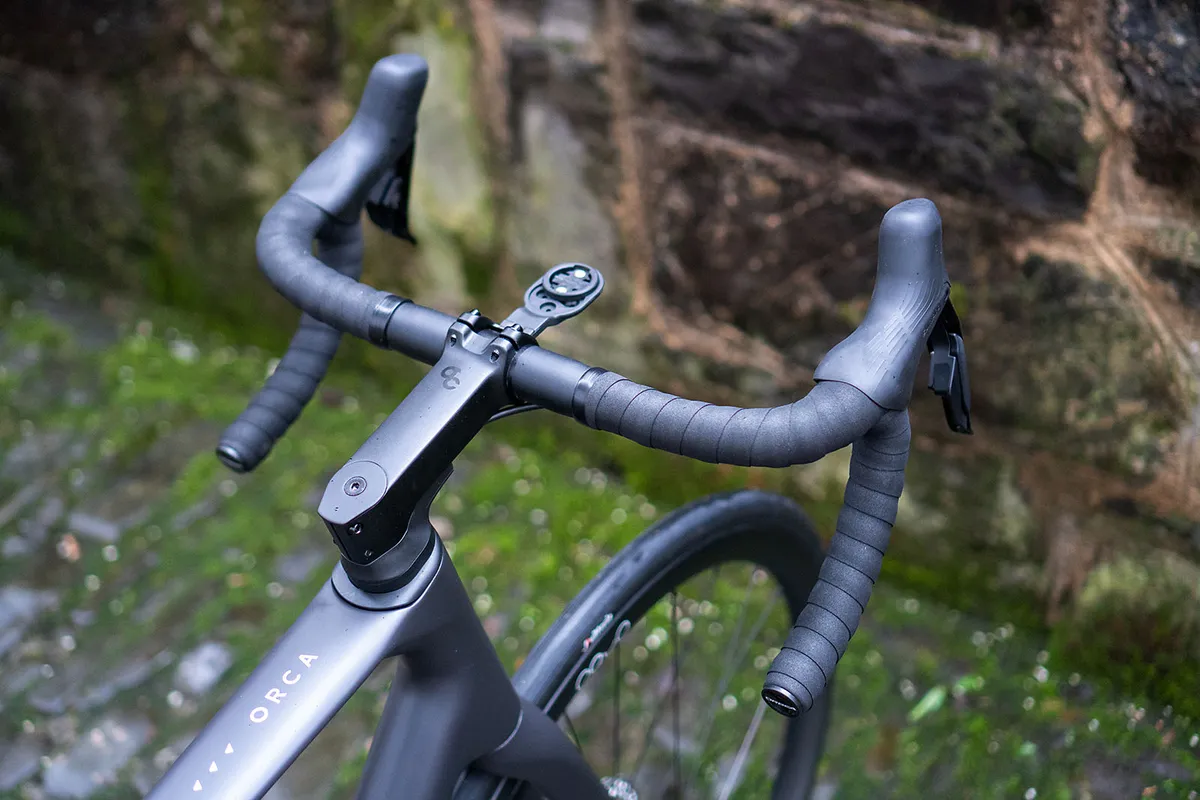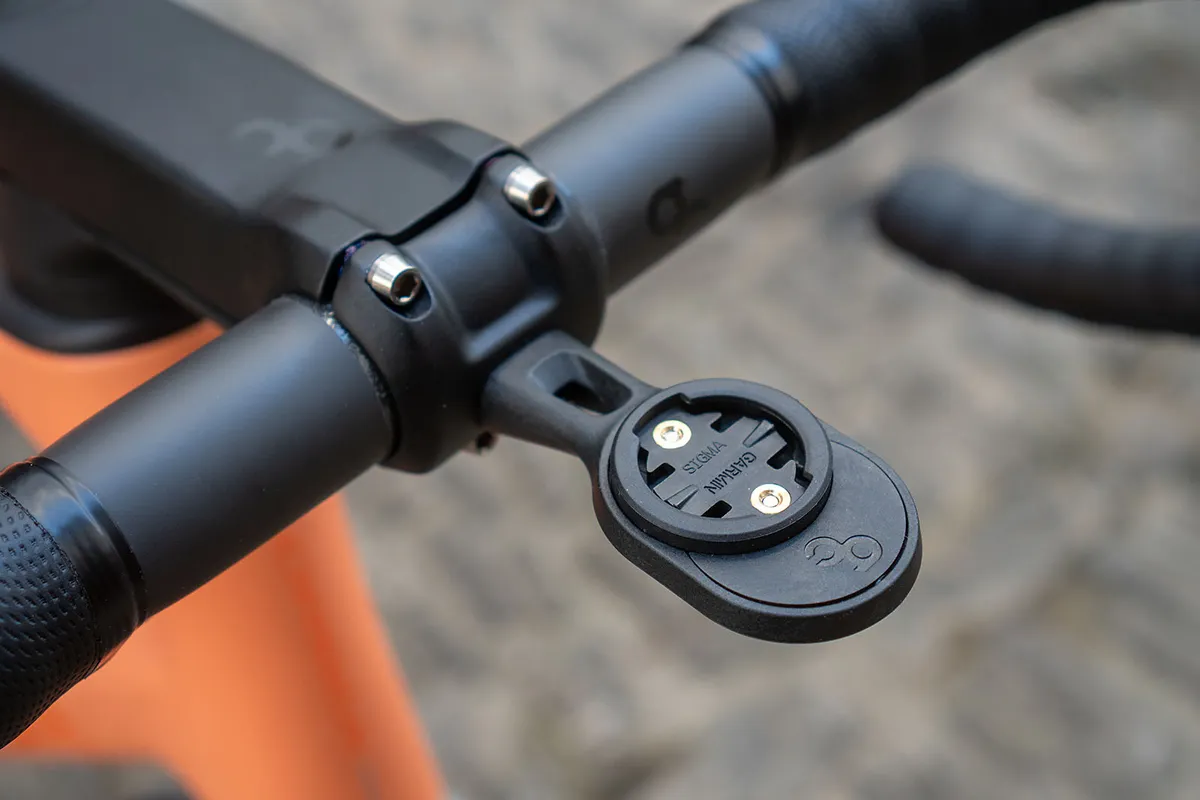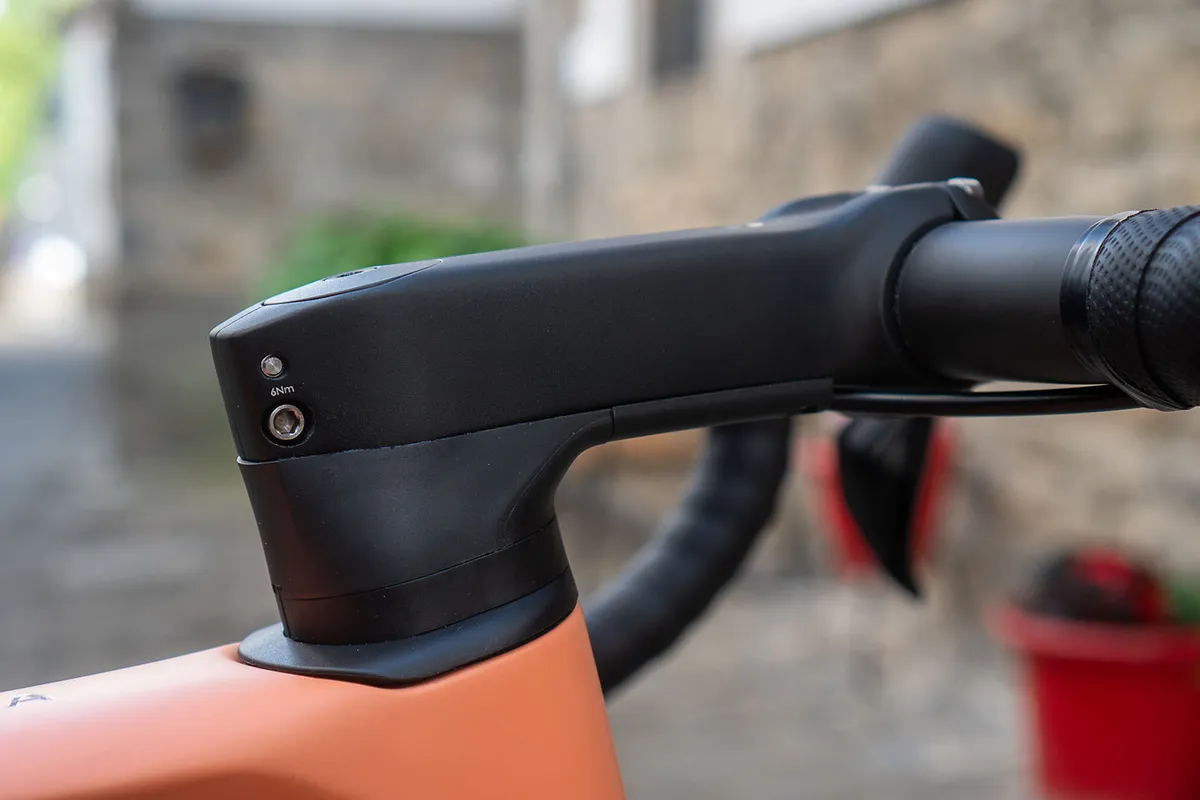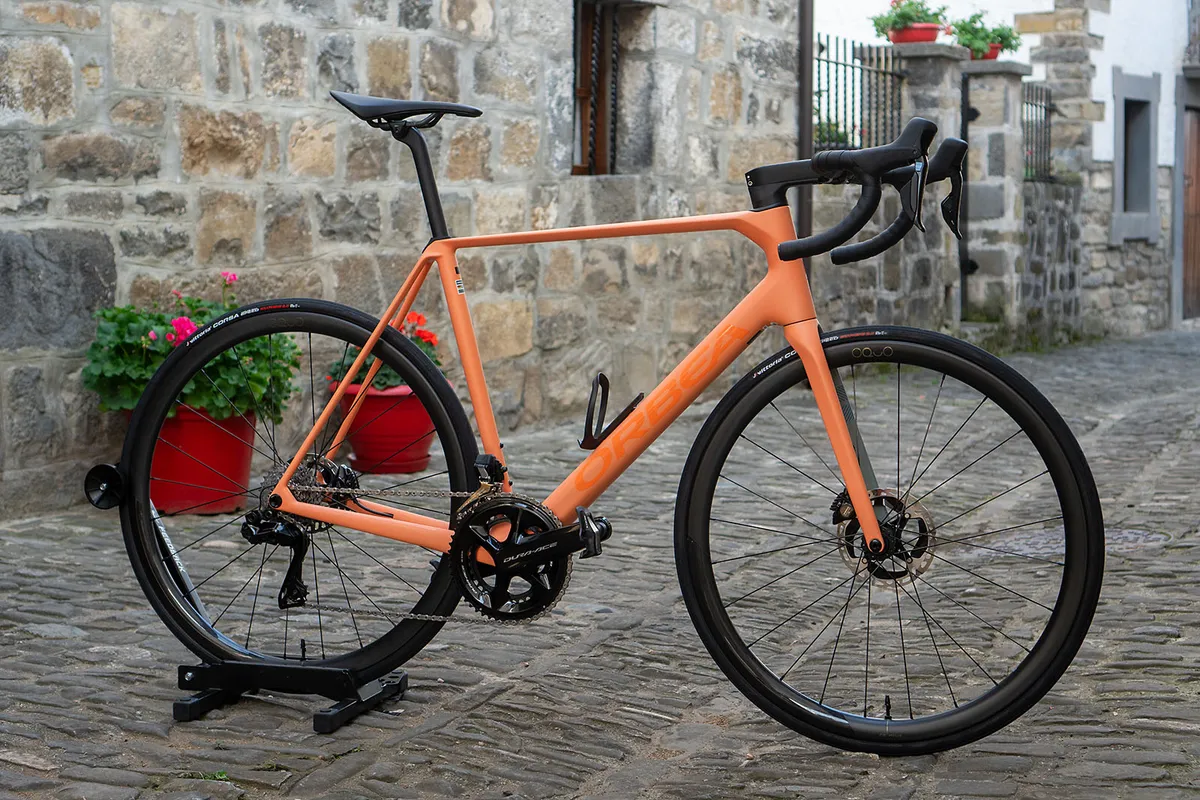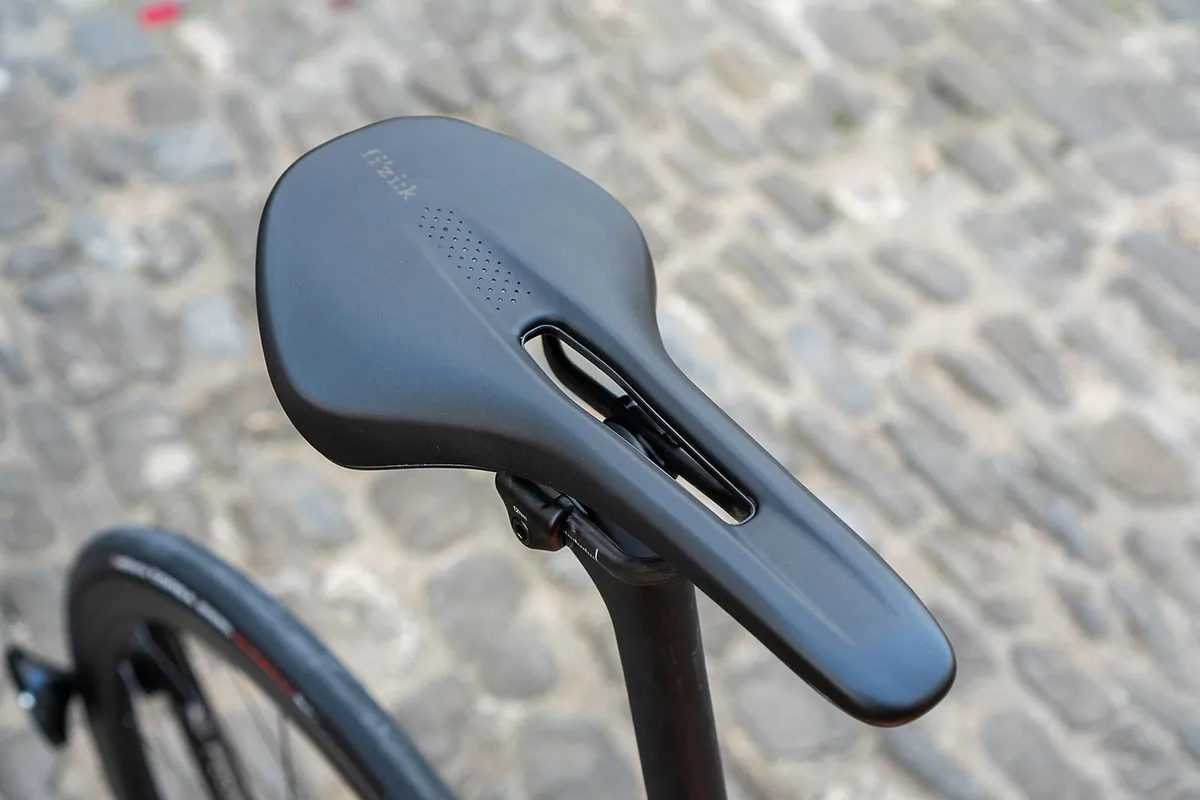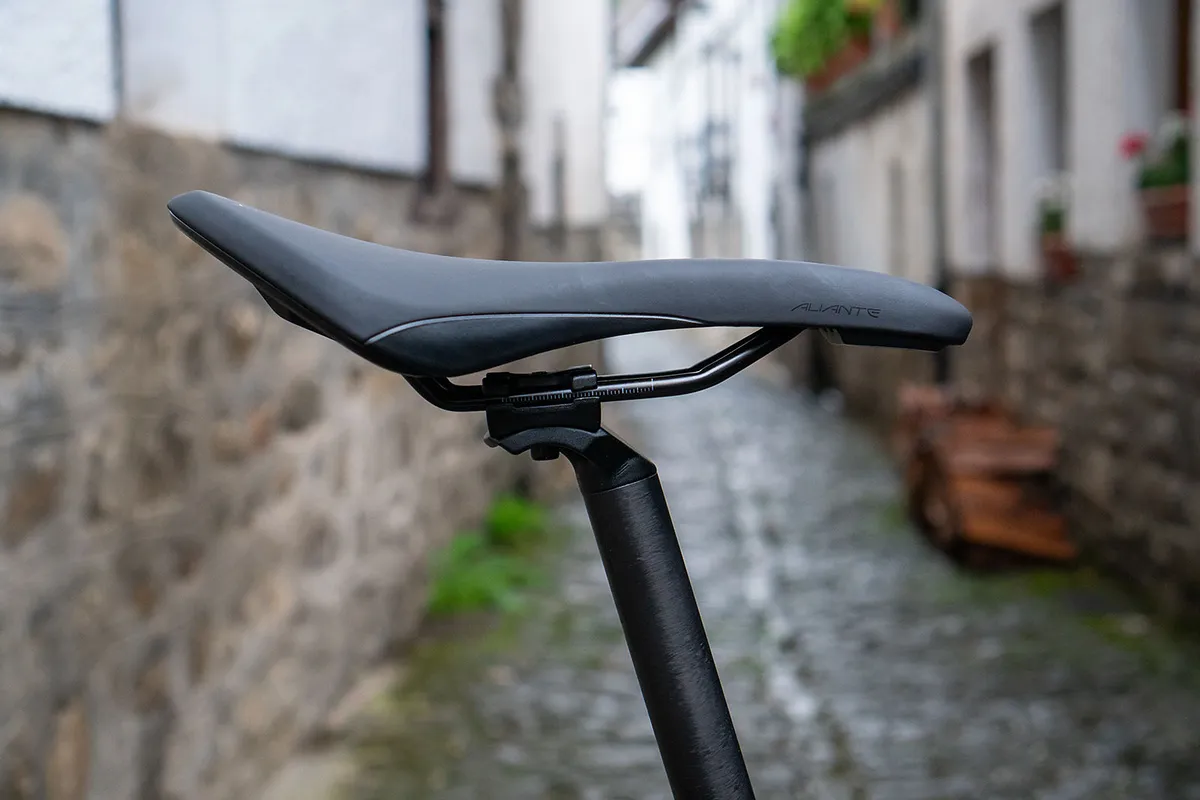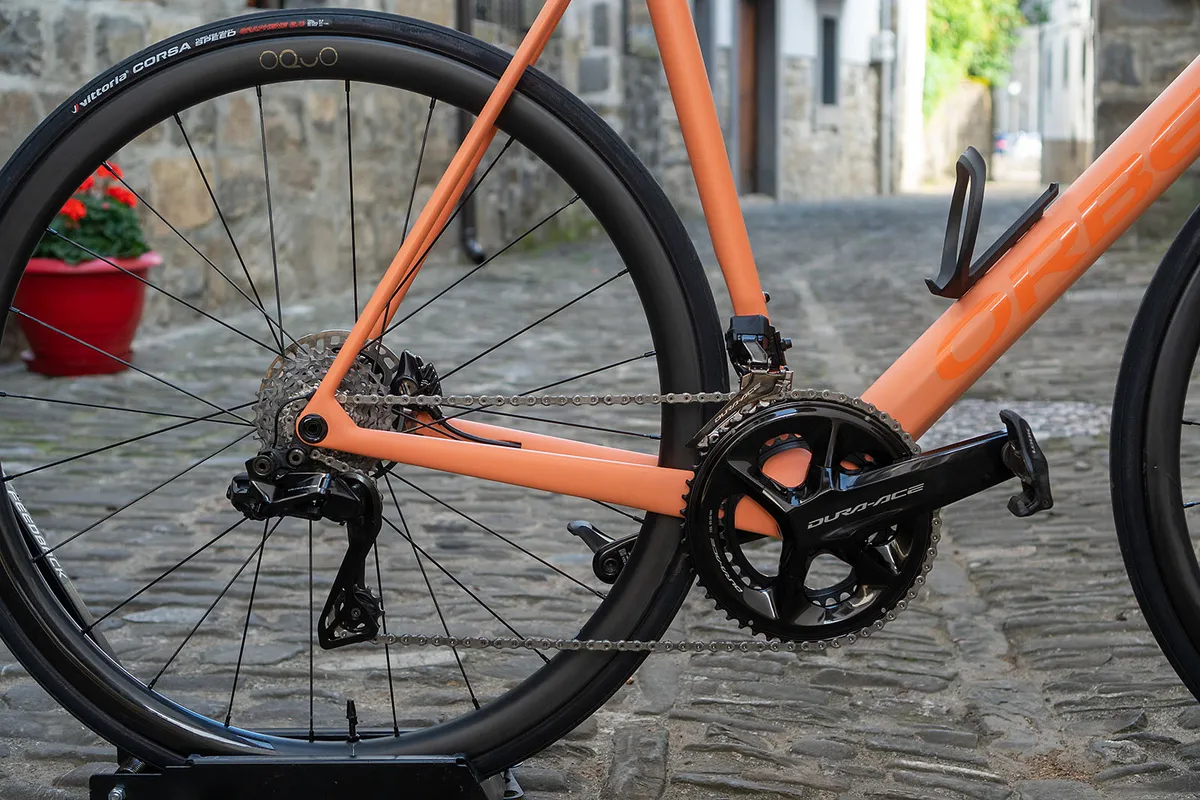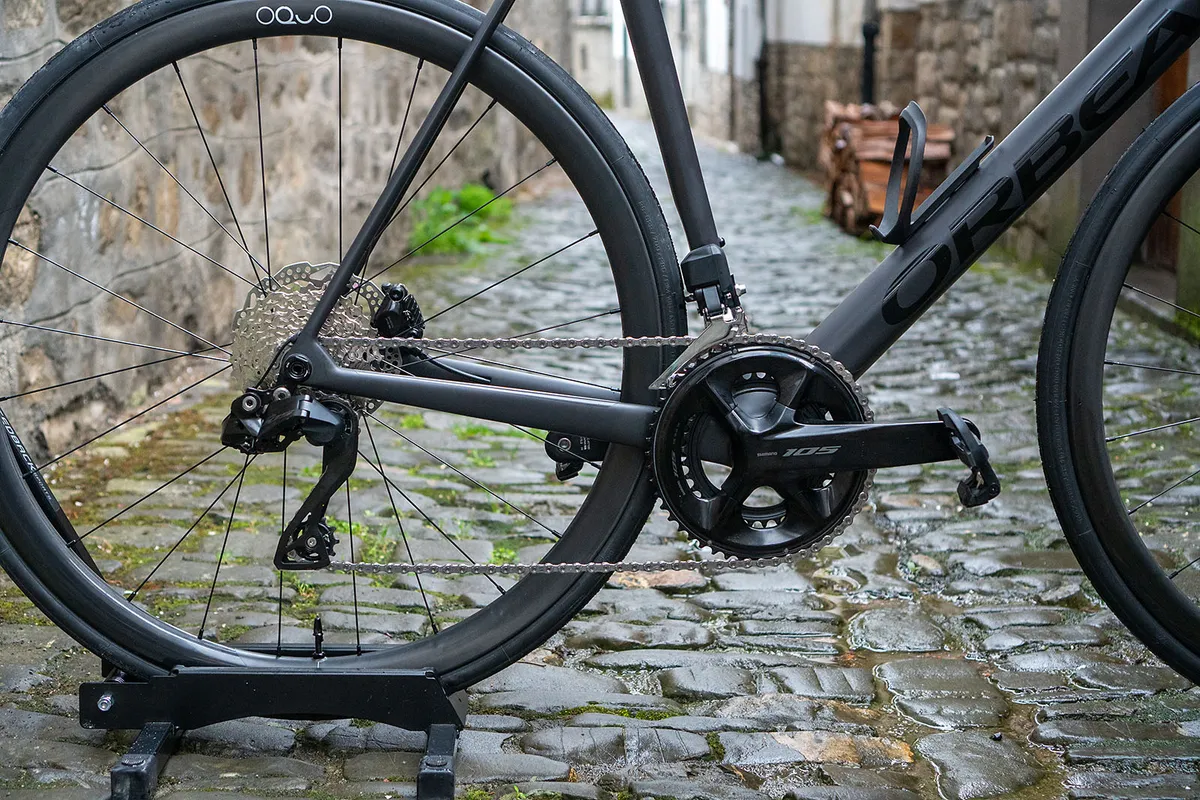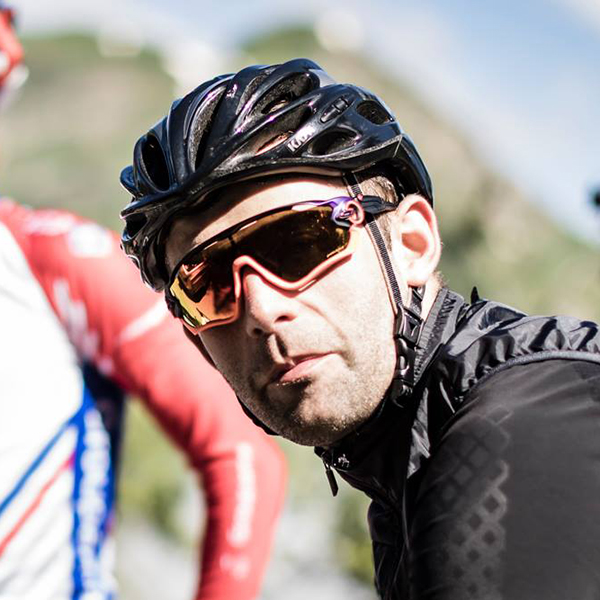Orbea has launched an updated Orca road bike, prioritising light weight and ride quality over aerodynamics.
The top-specification Orca OMX frame tips the scales at a claimed 750g in a size 53, while the second-tier OMR frame is said to weigh 1,040g.
Orbea claims complete Orca OMX bikes will weigh as little as 6.7kg (also in a size 53).
There are 11 builds of the new Orca available from today, 10 of which can be customised through the brand’s MyO bike builder programme.
Prices start from £3,599/$3,599/€3,399 for a Shimano 105 Di2 R7100-equipped Orca OMR, rising to £11,999/$11,599/€10,999 for a SRAM Red AXS or Shimano Dura-Ace Di2 R9200-equipped Orca OMX (complete with power meters).
A horse for the course
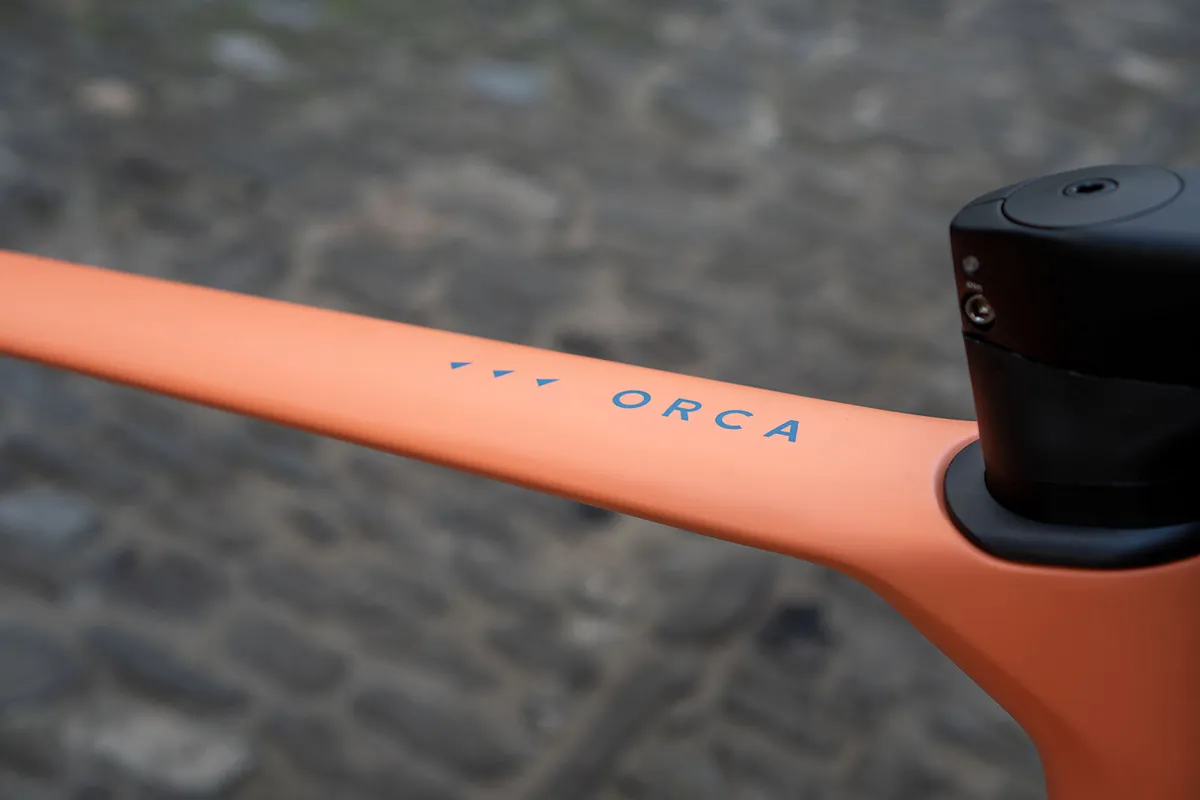
The Orca is now in its seventh generation, and – to some eyes, at least – might seem a backwards step in terms of evolution.
Orbea has stripped it of some (though not all) of the aero bells and whistles the previous Orca had, instead choosing to prioritise light weight, handling and responsiveness.
It marks a contrast to the current trend of developing road racing bikes to combine aerodynamic efficiency with lightweight performance.
The Basque brand says this helps to make the new Orca stand out from the competition with its ride quality, leaving the Orca Aero aero bike to suit those who want ultimate speed on flatter courses.
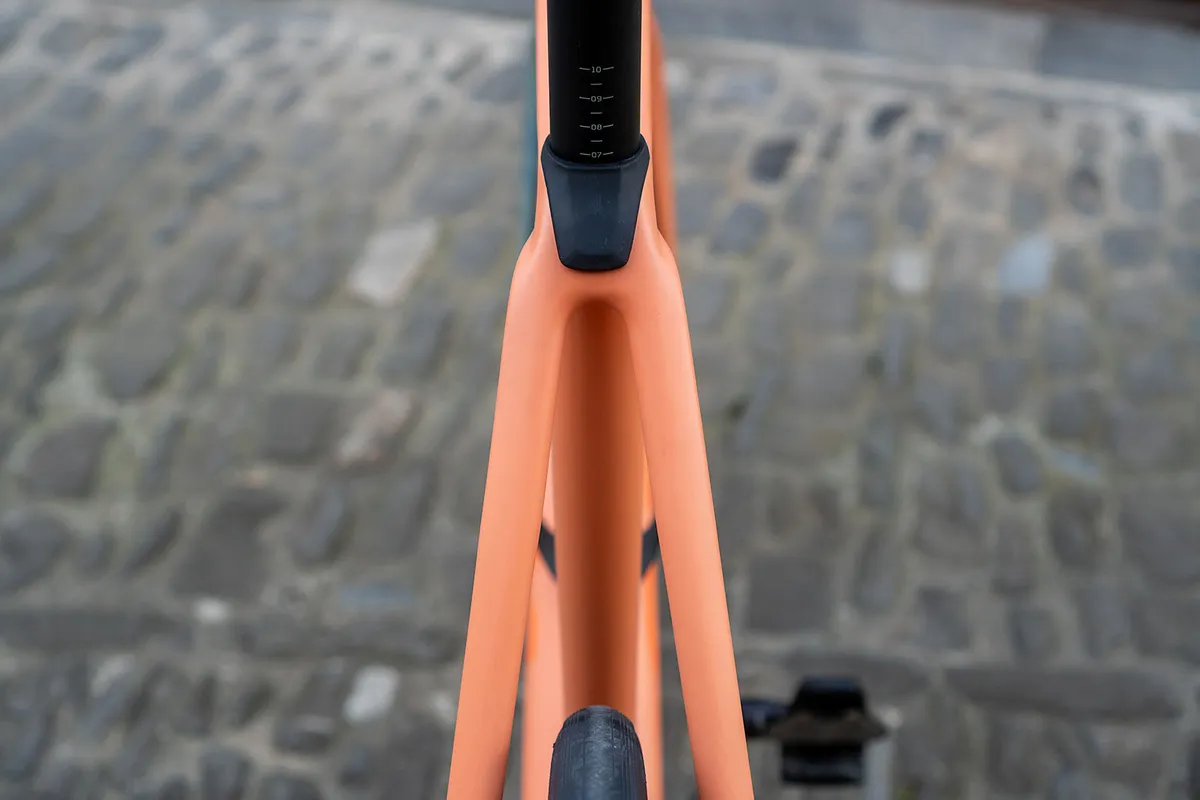
While the new Orca has been the subject of CFD (computational fluid dynamics) modelling and wind tunnel testing, Orbea’s road product manager Joseba Arizaga claims aero features were only built in if they didn’t negatively affect ride quality.
The Orca comes in two frame specifications. The top-tier OMX frame uses high-modulus Toray T1100 carbon to help it hit its claimed 750g weight (in a size 53), while retaining the stiffness the brand’s pro riders will need.
The previous Orca OMX frame weighed a claimed 830g in a size 53, representing an 80g saving.
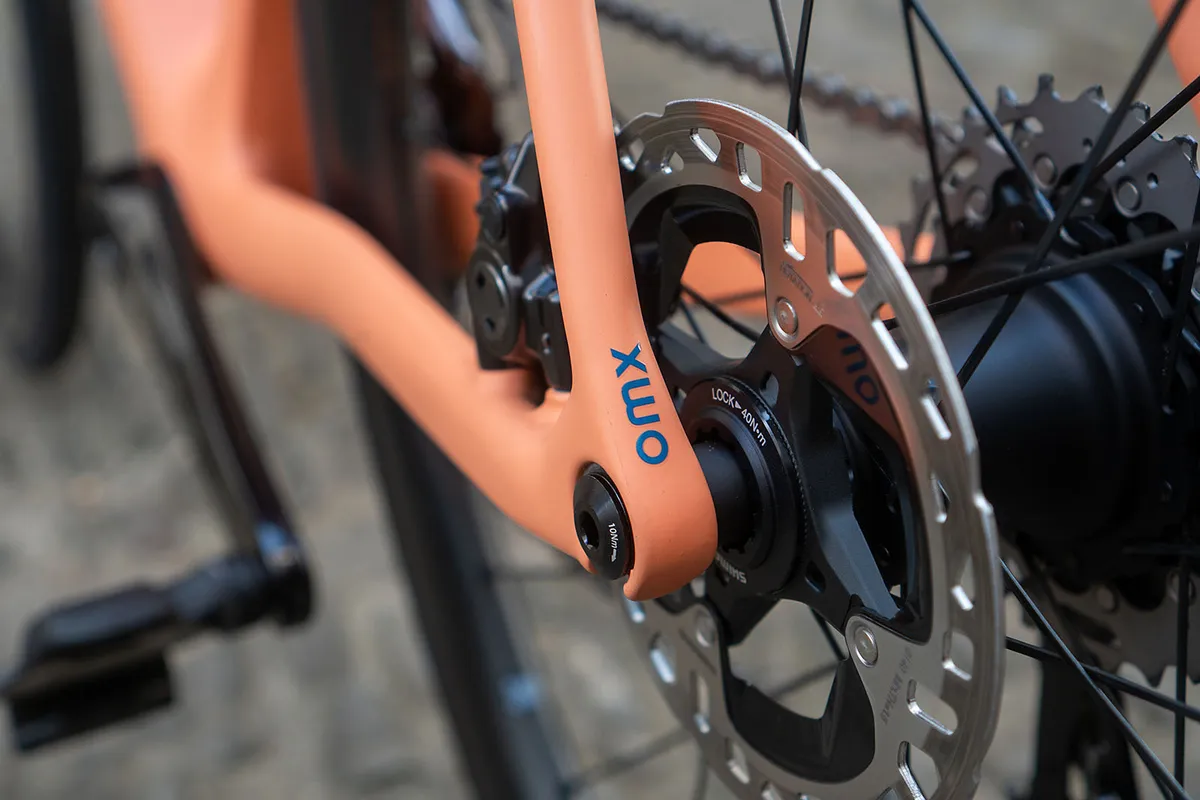
This weight incorporates its lacquer coating, paint and hardware (including seatpost clamp assembly and hanger), while the OMX fork is said to weigh 360g with an uncut steerer.
The OMR-spec frame weighs 1,040g, including paint and hardware, utilising ‘intermediate modulus’ Toray T800 carbon that's said to improve compliance and comfort.
Orbea says it retains the same stiffness-to-weight ratio as its lighter sibling, albeit at a heavier overall weight.
An uncut OMR fork is claimed to weigh 410g.
Development and details
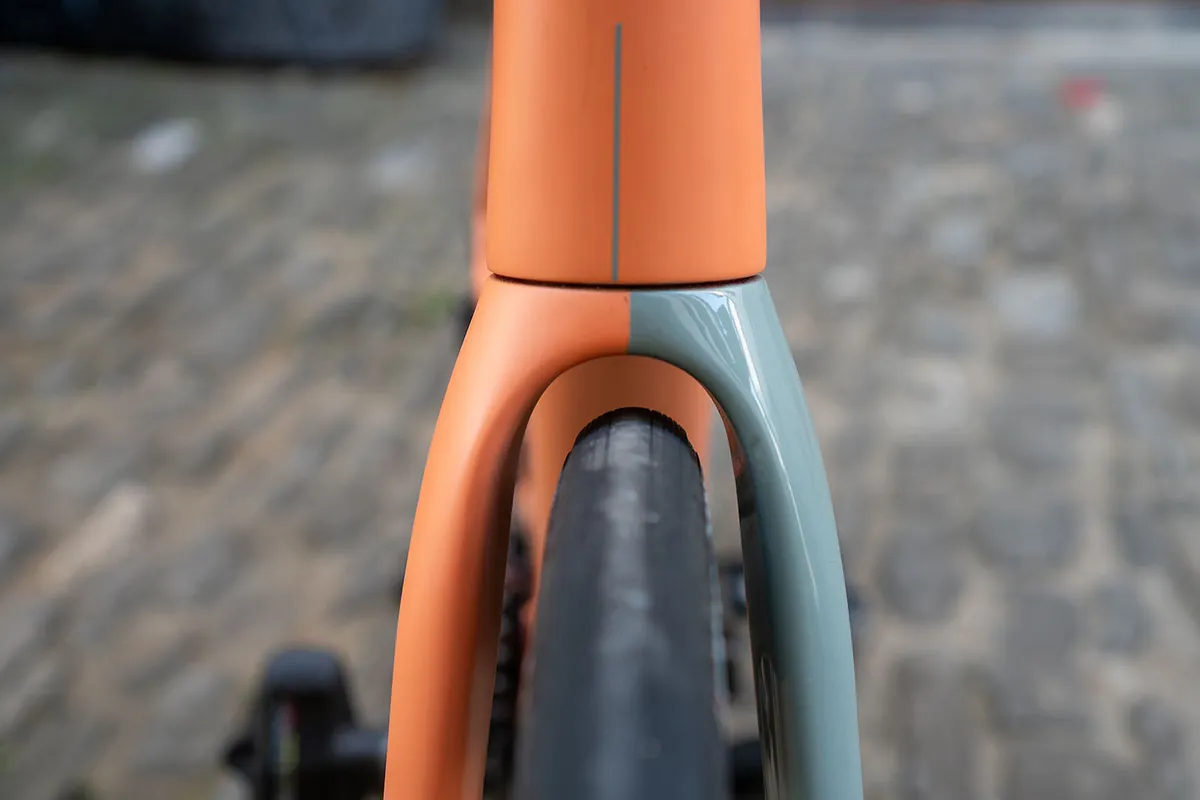
Orbea says these frame weights were made possible by a reduction of aerofoil severity across the bike, while benefitting from a refinement of the layup process.
It also says it has removed excess epoxy resin from the previous Orca design, and reduced carbon overlap thanks to its deployment of 90 fewer pieces in its makeup.
The down tube, bottom bracket and chainstays have been fortified to deliver high levels of lateral stiffness (Orbea calls this its ‘Powerspine’ concept), while incorporating ride-balancing qualities into the down tube, seat tube and seatstays.
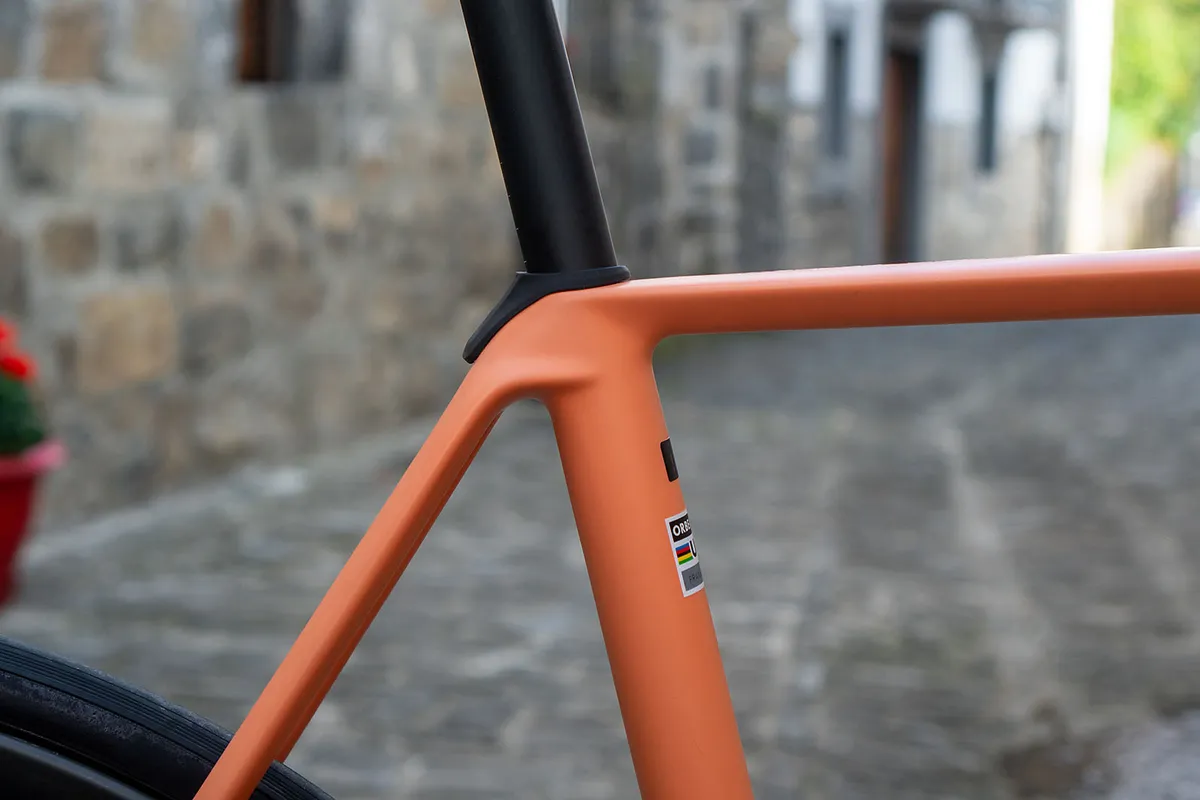
Notably, the frame is visibly slimmer, with more rounded profiles applied to the down tube and seat tube.
The slender seatstays now meet the seat tube and top tube at a single junction, reminiscent of more classical bike designs of yesteryear (and some modern bikes such as the Specialized Aethos).
Also harking back somewhat is a standard round 27.2mm seatpost, fixed in place by a simplified clamp mechanism accessible from the rear.
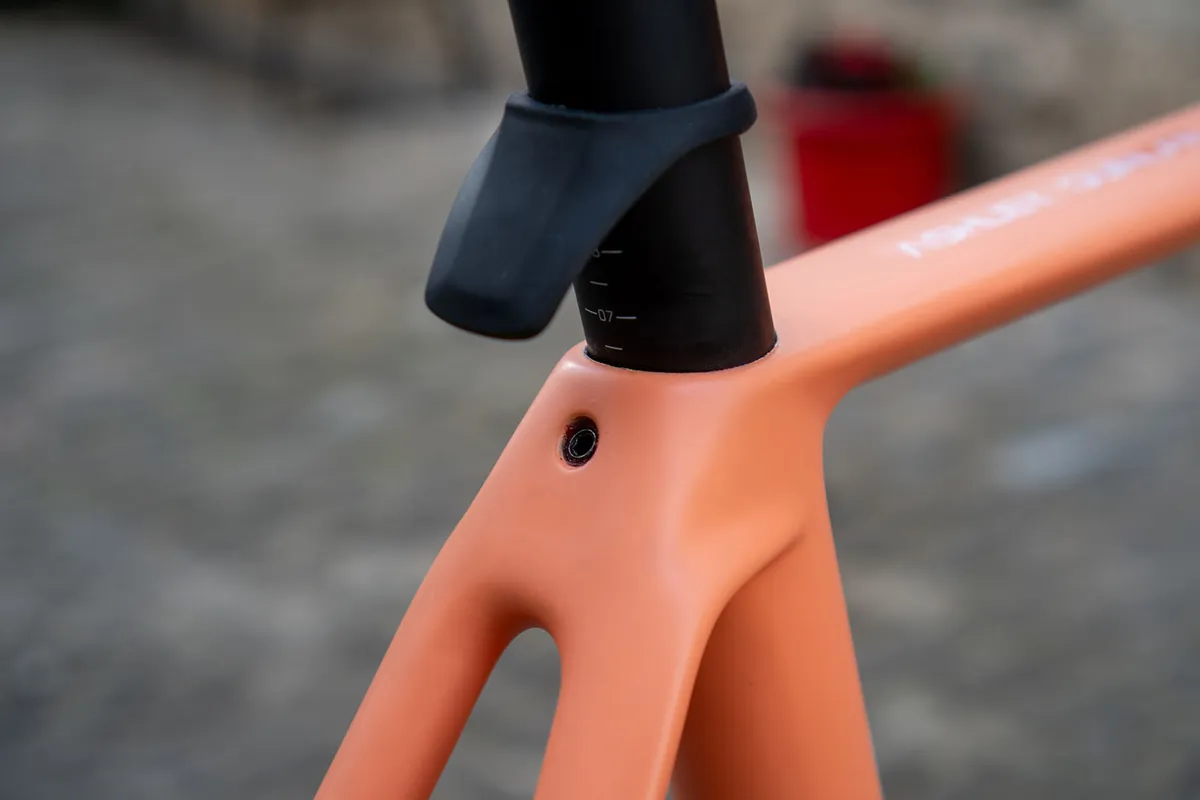
The more classical design is also said to improve compliance overall.
Orbea claims the tall, rounded seatstays are more compliant than dropped, aero stays, while it also says the vast majority of compliance in any bike frameset assembly comes from the exposed length of the seatpost shaft.
Orbea doesn’t give specific stiffness values, but says the Orca maintains the same stiffness-to-weight ratio across the range of sizes of OMX and OMR frames. This means each size should offer a similar ride feel.
The Orca is designed to accommodate up to 700 x 32c tyres, and is built around a BB386 press-fit bottom bracket.
While the likes of Cannondale and Specialized have moved back to threaded bottom brackets in recent times, Orbea says it has not experienced any reliability problems with BB386 that would prompt a switch.
A (largely) unchanged geometry
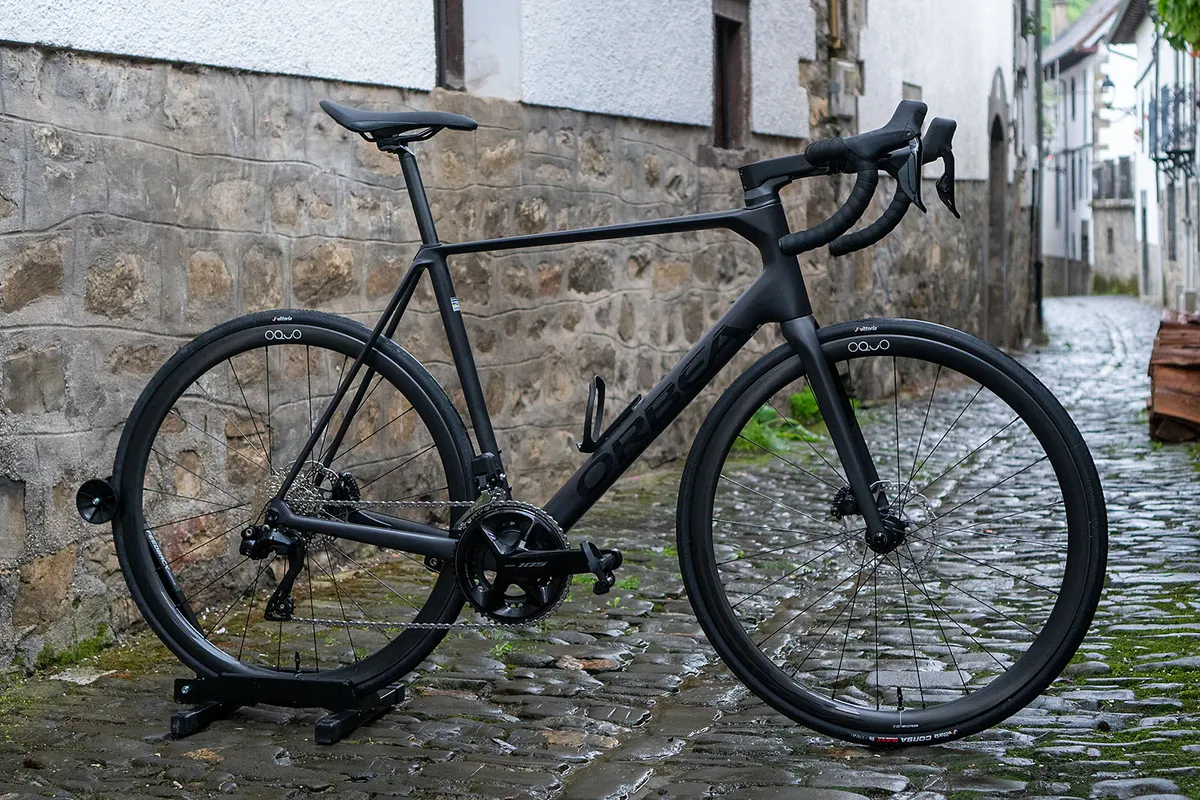
Numbers wise, Orbea says the Orca’s race-bred geometry is unchanged, barring a 2mm shortening of the chainstays (and, therefore, the wheelbase).
All things being equal, shorter chainstays and wheelbases tend to make handling and responsiveness a little sharper.
While the slight decrease here is unlikely to make a substantial difference to overall handling compared to its predecessor, Arizaga says the latest Orca is still intended to provide a more stable, confident ride experience when descending at speed.
Importantly, where the previous-generation Orca OMR frame had a more endurance-oriented geometry compared to the Orca OMX, both of the latest-generation OMX and OMR frames are identical.
| | 47 | 49 | 51 | 53 | 55 | 57 | 60 |
|---|---|---|---|---|---|---|---|
| Seat angle (degrees) | 74.5 | 74 | 73.7 | 73.5 | 73.5 | 73.2 | 73.2 |
| Head angle (degrees) | 71 | 71.5 | 72.2 | 72.8 | 73 | 73.2 | 73.2 |
| Chainstay (mm) | 408 | 408 | 408 | 408 | 408 | 408 | 408 |
| Seat tube (mm) | 440 | 460 | 480 | 500 | 520 | 540 | 570 |
| Top tube (mm) | 510.3 | 522.7 | 535.9 | 548.5 | 560.4 | 576.1 | 590 |
| Head tube (mm) | 110.5 | 118.2 | 134.6 | 152.9 | 173.1 | 191.2 | 218.3 |
| Fork offset (mm) | 48 | 48 | 48 | 43 | 43 | 43 | 43 |
| Trail (mm) | 66 | 62.8 | 58.4 | 59.9 | 58.7 | 57.4 | 57.4 |
| Bottom bracket drop (mm) | 72 | 72 | 72 | 70 | 70 | 70 | 70 |
| Bottom bracket height (mm) | 268.5 | 268.5 | 268.5 | 270.5 | 270.5 | 270.5 | 270.5 |
| Wheelbase (mm) | 971.8 | 975.4 | 980 | 981.2 | 991.4 | 1,001.9 | 1,015.6 |
| Standover (mm) | 736.5 | 748.5 | 767.5 | 788.5 | 808.5 | 826.5 | 852.5 |
| Stack (mm) | 506 | 515 | 533 | 552 | 572 | 590 | 616 |
| Reach (mm) | 370 | 375 | 380 | 385 | 391 | 398 | 404 |
Highly customisable platform
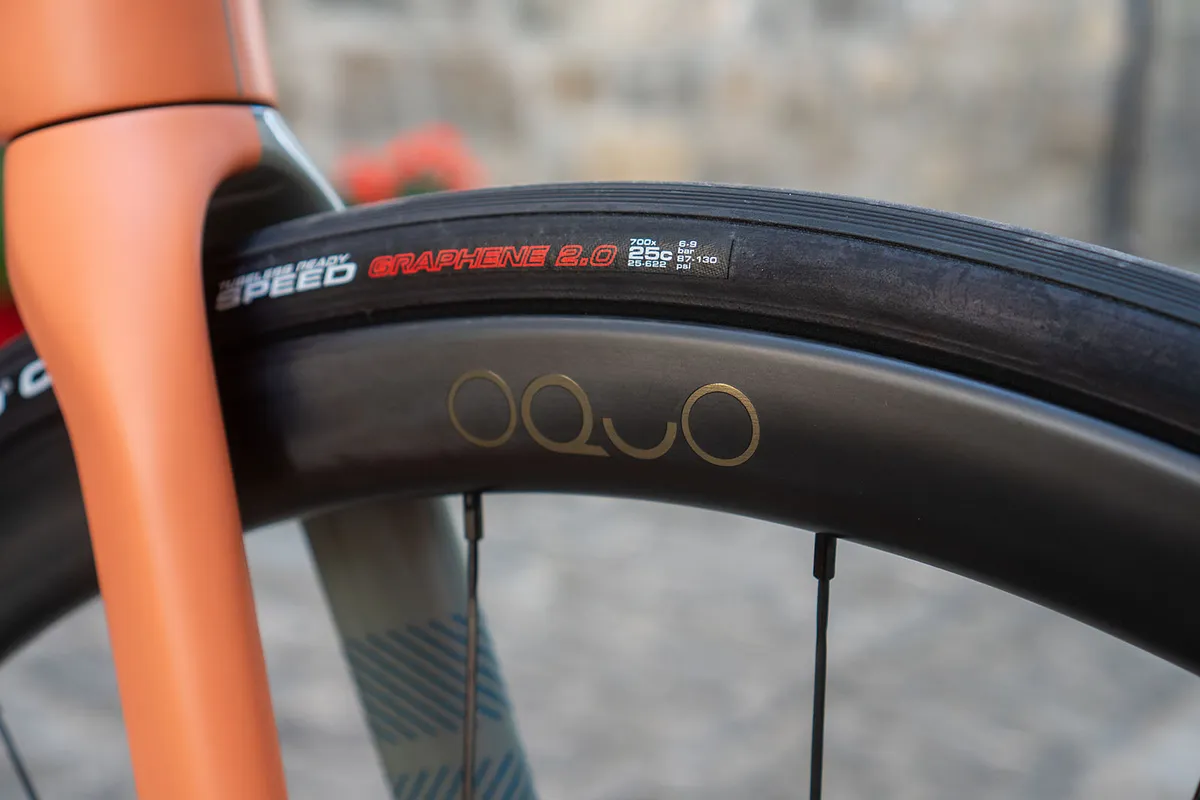
While Orbea arguably hasn’t followed the crowd by stripping the Orca of a good chunk of its all-rounder (aero) credentials, it has followed many other brands' wheels by speccing it with its own component lines where possible.
Chief among these are its new Oquo road wheels, which it says the new Orca was partially developed around, rather than specifying other-brand hoops.
Arizaga says a choice of rim depths at no extra cost (assuming you stick to the wheelset’s range tiering), alongside playing with the rider fit, is where the Orca’s performance can be best modified to suit its purpose.
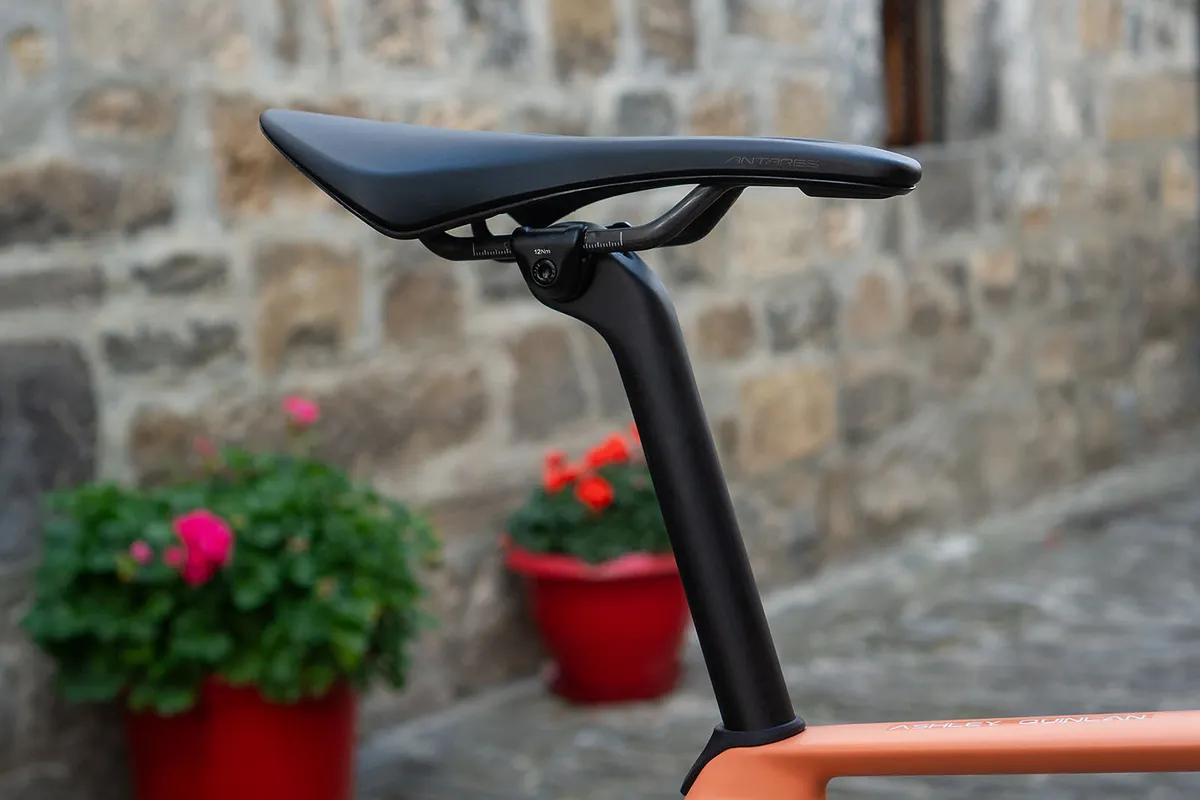
The cockpit and seatpost come from the brand’s OC finishing kit line, leaving just the groupset, tyres and saddle as the specialist parts it sources from elsewhere.
That said, Orbea has given potential riders lots of freedom to choose their own setups.
Primarily, it offers a range of common handlebar and stem size options through its MyO bike customisation programme, plus the choice of a zero or 20mm setback carbon seatpost.
The brand has aimed to keep things easily swappable if needed. The aforementioned round 27.2mm seatpost dimensions mean this can be switched simply, while Orbea has opted to use standard 1-1/2in headset bearings.
This enables the use of the aero cockpit otherwise reserved for the Orca Aero with a dedicated adaptor headset cap.
At the launch event, Ceratizit-WNT Pro Cycling team rider, Hanna Nilsson, sported such a setup.
Orbea says it can also supply a universal adaptor for use with a vast range of bar-stem setups.
Otherwise, the Orca’s OC cockpit is a two-piece affair, with the stem clamping to a standard 31.8mm-diameter handlebar.
There are three OC bars available, one lightweight carbon ‘HB11’ bar that’s claimed to weigh 190g, and two alloy models.
The OC cockpit uses FSA’s ICR cable routing system, for which the Italian brand produces a growing selection of adaptors that enable the use of other popular integrated bar-stem setups, should you have a favourite.
Brake hoses and cables route in through an opening on the underside of the stem cap, and down in front of the steerer. Depending on your chosen cockpit, this can be totally enclosed.
Orbea Orca availability, prices and specifications
The new Orbea Orca is on sale from today in 11 base specifications, 10 of which are available through the MyO customisation programme.
The entry-level M30i is the sole exception at launch; it comes with a pre-defined (size-suitable) finishing kit.
All others can be customised (including frame colours), with your choice of cockpit, seatpost, saddle and tyres.
Six builds are offered with the OMX frameset, with prices ranging from £6,499/$5,999/€5,999 for a Shimano 105 Di2 R7100-equipped model to £11,999/$11,599/€10,999 with a SRAM Red AXS or Shimano Dura-Ace Di2 R9200 groupset (including power meter cranksets).
Five OMR builds are available, starting from £3,599/$3,599/€3,399 for the un-customisable M30i and rising to £6,299/$5,999/€5,799.
Additional costs can be incurred through the selection of upgraded components, but Orbea also says the reverse is true should you wish to change the specification for a cheaper component.
Orbea Orca M11e LTD PWR
- Price: £11,999/$11,599/€10,999
- Frame: Orca OMX
- Fork: Orca OMX
- Groupset: SRAM Red AXS
- Power meter: Yes
- Wheels: Oquo RP 35 LTD
- Seatpost: OC carbon, 27.2mm
- Customisable: Yes
Orbea Orca M10i LTD PWR
- Price: £11,999/$11,599/€10,999
- Frame: Orca OMX
- Fork: Orca OMX
- Groupset: Shimano Dura-Ace Di2 R9200
- Power meter: Yes
- Wheels: Oquo RP 35 LTD
- Seatpost: OC carbon, 27.2mm
- Customisable: Yes
Orbea Orca M21e LTD PWR
- Price: £8,799/$7,999/€7,999
- Frame: Orca OMX
- Fork: Orca OMX
- Groupset: SRAM Force AXS
- Power meter: Yes
- Wheels: Oquo RP 35 LTD
- Seatpost: OC carbon, 27.2mm
- Customisable: Yes
Orbea Orca M20i LTD
- Price: £7,699/$6,999/€6,999
- Frame: Orca OMX
- Fork: Orca OMX
- Groupset: Shimano Ultegra Di2 R8100
- Power meter: No
- Wheels: Oquo RP 35 LTD
- Seatpost: OC carbon, 27.2mm
- Customisable: Yes
Orbea Orca M31e LTD PWR
- Price: £6,999/$6,899/€6,599
- Frame: Orca OMX
- Fork: Orca OMX
- Groupset: SRAM Rival AXS
- Power meter: Yes
- Wheels: Oquo RP 35 LTD
- Seatpost: OC carbon, 27.2mm
- Customisable: Yes
Orbea Orca M30i LTD PWR
- Price: £6,499/$5,999/€5,999
- Frame: Orca OMX
- Fork: Orca OMX
- Groupset: Shimano 105 Di2 R7100
- Power meter: Yes (4iii single sided)
- Wheels: Oquo RP 35 LTD
- Seatpost: OC carbon, 27.2mm
- Customisable: Yes
Orbea Orca M21eTEAM PWR
- Price: £6,299/$5,999/€5,799
- Frame: Orca OMR
- Fork: Orca OMR
- Groupset: SRAM Force AXS
- Power meter: Yes
- Wheels: Oquo RP 35 TEAM
- Seatpost: OC carbon, 27.2mm
- Customisable: Yes
Orbea Orca M20iTEAM
- Price: £6,299/$5,799/€5,999
- Frame: Orca OMR
- Fork: Orca OMR
- Groupset: Shimano Ultegra Di2 R8100
- Power meter: No
- Wheels: Oquo RP 35 TEAM
- Seatpost: OC carbon, 27.2mm
- Customisable: Yes
Orbea Orca M31eTEAM
- Price: £4,799/$4,699/€4,399
- Frame: Orca OMR
- Fork: Orca OMR
- Groupset: SRAM Rival AXS
- Power meter: No
- Wheels: Oquo RP 35 TEAM
- Seatpost: OC carbon, 27.2mm
- Customisable: Yes
Orbea Orca M35i
- Price: £4,799/$4,599/€4,399
- Frame: Orca OMR
- Fork: Orca OMR
- Groupset: Shimano 105 Di2 R7100
- Power meter: No
- Wheels: Oquo RP 35 TEAM
- Seatpost: OC carbon, 27.2mm
- Customisable: Yes
Orbea Orca M30i
- Price: £3,599/$3,599/€3,399
- Frame: Orca OMR
- Fork: Orca OMR
- Groupset: Shimano 105 Di2 R7100
- Power meter: No
- Wheels: Oquo RP 35 PRO
- Seatpost: OC carbon, 27.2mm
- Customisable: No
